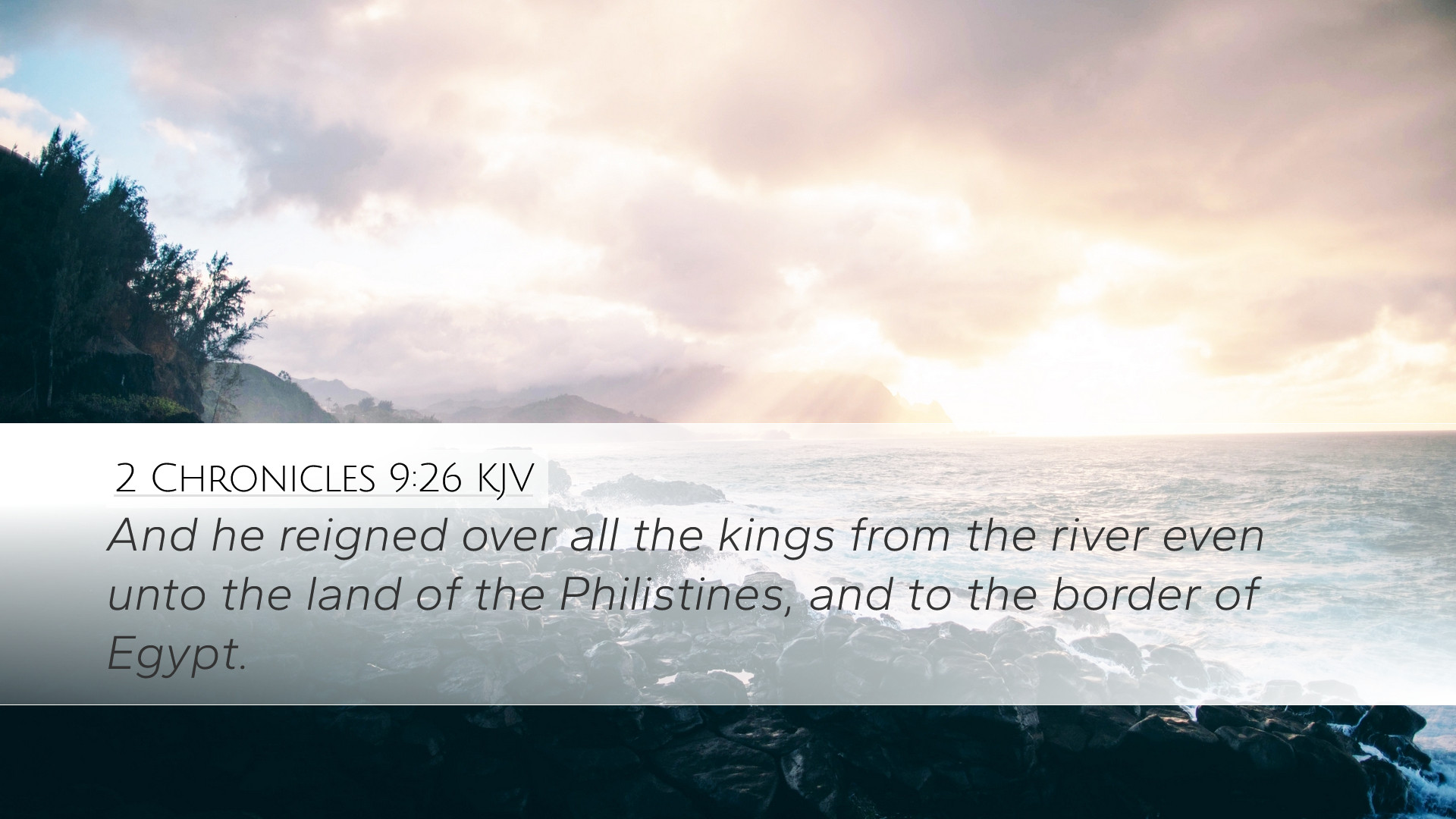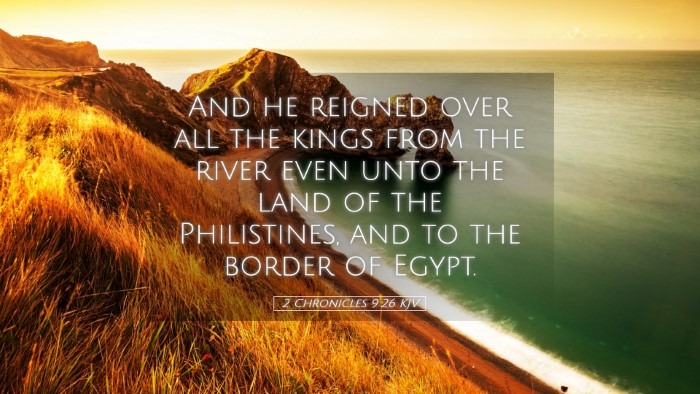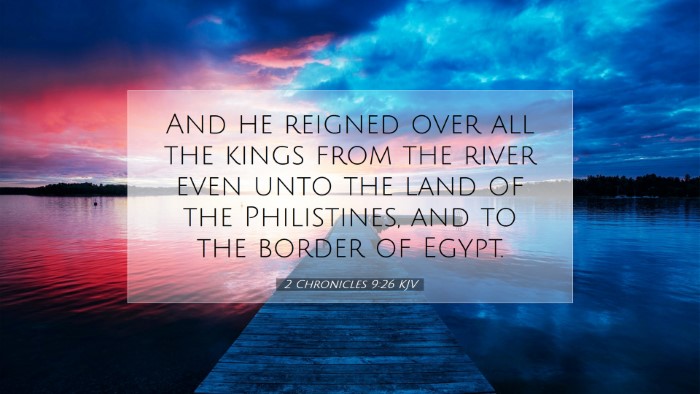Commentary on 2 Chronicles 9:26
Verse: "And he reigned over all the kings from river even unto the land of the Philistines, and over all the kings of the land." (2 Chronicles 9:26, KJV)
Introduction
This verse serves as a pivotal summary of King Solomon's extensive reign and encapsulates the grandeur and authority he held over a substantial portion of the ancient Near East. The mention of his dominion over various kings is indicative of Solomon's political and military prowess as well as the divine blessing he received from God. Various public domain commentaries offer rich insights into the implications of this passage.
Historical Context
2 Chronicles 9 is set against the backdrop of Solomon's reign, characterized by unprecedented wealth, wisdom, and peace in Israel. This passage highlights the sovereignty that Solomon exerted not only within his kingdom but also in relation to neighboring nations. Matthew Henry notes that Solomon’s reign was marked by a time of prosperity and influence, showcasing God’s promises fulfilled through his leadership.
Political Relationships
Albert Barnes emphasizes that the geographical references in the verse denote Solomon's control over a vast area, extending "from river" likely referring to the Euphrates, "even unto the land of the Philistines." This territorial dominance exemplified his ability to establish relationships with surrounding nations, which often came through strategic alliances, trade agreements, and military feats.
Divine Authority
Adam Clarke points out the theological significance of Solomon's reign as it underscores the fulfillment of God's promise to David regarding his lineage. Under Solomon, Israel reached its zenith, and it is crucial to observe that this power was not merely human achievement but a divine endorsement of Solomon's kingship. The extension of Solomon’s rule is thus seen as a reflection of God’s sovereign plan.
Theological Implications
The passage evokes several theological themes relevant for pastors, theologians, and scholars:
- God's Sovereignty: The control that Solomon wielded over other kings highlights God’s ultimate authority over earthly kingdoms. As seen in Psalm 47:2, where it states, "For the LORD Most High is terrible; he is a great King over all the earth," this verse affirms God's supremacy and His will in the affairs of men.
- Wisdom and Leadership: Solomon’s reign demonstrates the importance of wisdom in leadership. As noted by Henry, Solomon's request for wisdom to govern effectively (1 Kings 3:9) exemplifies a model for contemporary leaders who seek counsel before making significant decisions.
- Peaceful Governance: The era of peace during Solomon's reign, as noted throughout Chronicles, stands in stark contrast to the wars that preceded and followed. This peace is often attributed to God's favor. Furthermore, it serves as a reflection of the Messianic hopes found in prophecies concerning a future King who will establish eternal peace.
Lessons for Today
The text offers profound lessons for modern readers and leaders:
- Influence and Responsibility: With great influence comes great responsibility. Leaders should strive to conduct their governance in a way that honors God and promotes justice. Reflecting on Solomon's reign compels contemporary leaders to assess how their decisions impact society and align with divine principles.
- Dependence on God: Just as Solomon relied on God's wisdom, it is vital for modern leaders and individuals to seek divine direction. Prayer and scriptural guidance should underpin significant decisions in life.
- Unity and Relations: Solomon's reign serves as a reminder of the importance of cultivating relationships with others. In an age of division, this passage challenges believers to foster unity and peace in their communities.
Conclusion
2 Chronicles 9:26 encapsulates the glory of Solomon’s reign and the extent of his influence as king. The insights drawn from public domain commentaries aid in understanding the richness of this text, which serves not only as a historical account but also as a source of theological reflection and practical application. As contemporary believers engage with this passage, may they be inspired to pursue wisdom, embrace a God-centered approach to leadership, and foster relationships that reflect God's love and sovereignty.


